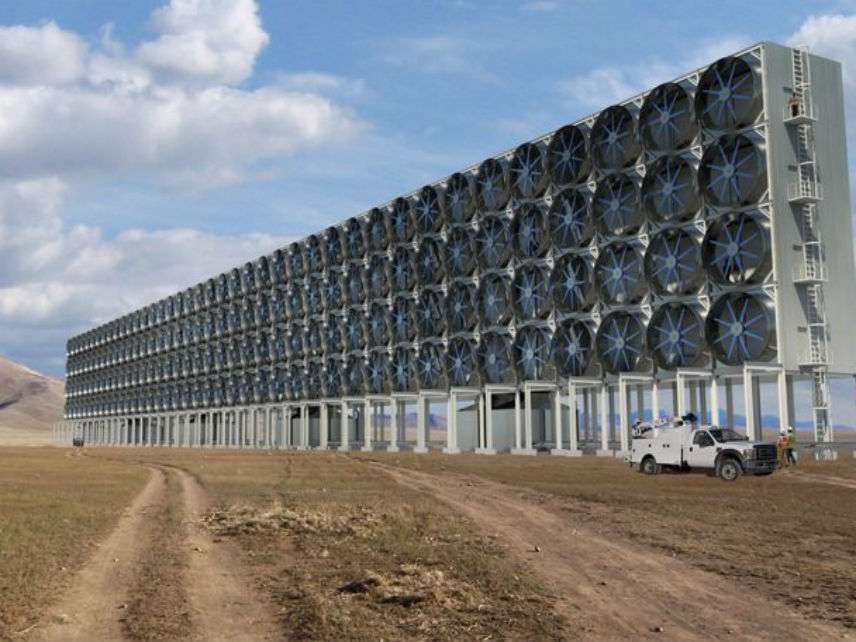Sucking Carbon Dioxide from the Air to Produce Gasoline?
Carbon-neutral transportation fuels might be possible.

Recycling the carbon dioxide emitted into the atmosphere by turning it back into fuel would help slow the process of global warming. An earlier estimate calculated that direct air capture (DAC) of carbon dioxide would be prohibitively expensive at least $600 per ton. But now Carbon Engineering, located in the British Columbia, has published a detailed engineering and cost analysis of its pilot DAC plant that suggests that its technology can remove carbon dioxide from the atmosphere for $94 to $232 per ton.
The low-end figure is based on a scenario in which electrolysis using no-carbon energy sources breaks apart water to provide both the oxygen and—crucially—the hydrogen needed to combine with the captured carbon dioxide to produce hydrocarbon fuels such as gasoline and diesel. Although a lot of media reports on the study jumped immediately to the happy idea that drivers might one day be able to choose between regular, premium, or carbon-free gasoline, the company does not include in its article an engineering cost estimate for transforming the captured carbon dioxide into liquid fuels.
The National Renewable Energy Laboratory (NREL) reported in 2016 that electrolysis using wind power could provide hydrogen at a cost of about $4.50 per kilogram. A very, very rough calculation is that 1,000 kilograms of carbon dioxide is composed of about 270 kilograms of carbon. Carbon makes up approximately 86 percent of the weight of gasoline and hydrogen the rest. So a gallon of gasoline weighs about 3.8 kilograms, of which 0.53 kilograms is hydrogen. Again roughly, it would take about 50 kilograms of hydrogen to transform 270 kilograms of carbon into 320 kilograms of gasoline—85 gallons of gas. The NREL's cost for that much hydrogen comes to $225 plus the $94 to capture the carbon dioxide. This would imply a cost of $3.75 per gallon.
That's in the ballpark of the figures offered by Carbon Engineering. The company claims that its scaled-up air-to-fuel system would be able to produce gasoline at about $1 per liter ($3.80 per gallon). It will interesting to see its calculations for the synthetic fuel pilot plant in a future publication. Just for comparison, the price of gasoline in California averages $3.70 and in British Columbia it runs about $4.27 per gallon (in U.S. dollars).
Unabated climate change could become a significant problem later in this century. This prospect encourages a claque of climate doomsters to demand that we degrow the world's economy in order to avert catastrophe. But climate change will not be unabated forever. Whether or not Carbon Engineering's DAC system works out, it does indicate how human ingenuity and continued economic growth will likely make most of the problems associated with climate change manageable.


Show Comments (152)